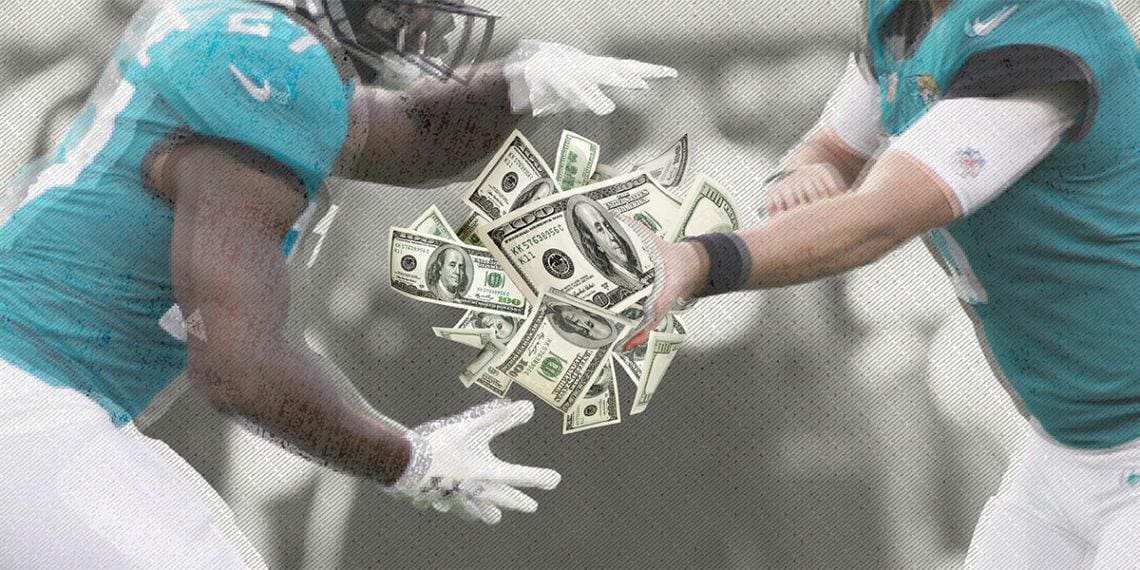This isn’t a story about business, third-party risk management, the DOJ or any of the other topics we normally cover on these pages. It’s a story about football, pain and failing upwards.
I wasn’t always an Indianapolis Colts fan; I came into the world when the team was still in Baltimore. The month I was born, Jim Irsay turned 20. Not long after that, Robert Irsay, Jim’s father, famously moved the team under the cloak of darkness from Owings Mills, Maryland, to a hero’s welcome in the newly constructed Hoosier Dome in downtown Indianapolis.
A month after the team got to Indy, Bob Irsay gave his 24-year-old son a plum NFL job: general manager of the Indianapolis Colts. In the NFL, the general manager is essentially the head of HR, responsible for personnel decisions, including those in the front office as well as those on the field.
Was young Jim Irsay a good general manager? Over his first 10 seasons as the team’s GM, the Colts made the playoffs once, a first-round loss. They didn’t have more than nine wins in any of Irsay’s 13 seasons as GM, and they went 1-15 in 1991 with Jeff George starting all 16 games at quarterback.
By virtue of that terrible season and a lucky trade outcome, the Colts ended up with the top two picks in the next year’s draft, a feat that’s virtually unheard of in professional sports.
Unfortunately for the Colts, 1992 holds the distinction of being perhaps the worst draft class in league history. But even if the draft talent wasn’t exactly stellar, the Colts’ picks were especially egregious: Steve Emtman, a defensive end who played in just nine games over three seasons due to injury, and linebacker Quentin Coryatt, who I remember only because he dropped an interception in the 1995 AFC Championship Game that probably would have sent the team to the Super Bowl.
Of course, things weren’t all bad during Irsay’s tenure as GM. They made the playoffs a couple of times and drafted running back Marshall Faulk, who was the top rookie in the league on offense during his first year with the team and is now a Hall of Famer, though his best years were with the St. Louis Rams.
I Call Bullshit on ‘Quiet Quitting’
It’s the only resource none of us can ever replenish: Time. So why is it now a revolutionary act to say that you’ll spend exactly as much time at work as your boss is willing to pay you for? Quiet quitting is a resoundingly stupid name for simply doing your job.
Read moreDetailsIn 1996, the Colts traveled to Pittsburgh for a playoff game, which they lost 42-14. A couple of weeks later, Bob Irsay died, and after a legal battle with his stepmother, Jim Irsay became the youngest NFL owner at age 37. Unlike general managers, team owners (mostly) aren’t involved in personnel decisions, except for hiring GMs and head coaches, Jerry Jones notwithstanding.
So, was relatively young Jim Irsay a good team owner? Well, that brings us to the pain part of this story. The Colts were so bad in 1997 that the following year, they once again had the top pick in the draft, selecting quarterback Peyton Manning and changing the fortunes of this sad-sack franchise.
The Colts have made the playoffs 16 of Irsay’s 26 seasons as the team’s owner, and Indianapolis celebrated its only Super Bowl win in the 2006 season. A few years later, they’d go to another Super Bowl (damn you, Hank Baskett) during a campaign in which they entered the second-to-last game of the regular season 14-0.
Having locked up their playoff position, Colts coach Jim Caldwell decided to rest the team’s starters rather than risk injury, and they finished the regular season 14-2. My father said he was done watching the team because Caldwell chickened out on going for a perfect record. It wouldn’t have mattered anyway, as the Colts lost to New Orleans in the Super Bowl at the end of the playoffs.
I blame my father for me becoming a Colts fan, but I can’t complain to him about it because he died in 2015 (remember, we’re in the pain part of the story), so I’ll complain about it to you. If you follow the NFL, you know the Colts’ fortunes haven’t remained bright, though there have been moments of brilliance.
We (sports fans love to say “we”) won a Super Bowl with Manning, who eventually decamped for Denver, where he won another Super Bowl, and in 2012, the Colts drafted Andrew Luck, who seemed every bit Manning’s equal — if not better. The team went to the playoffs in Luck’s first three seasons, each year getting closer and closer to a Super Bowl, and, boy, were they fun to watch. Fortune seemed to be on the Colts’ side; surely more championships were on the horizon.
Then came Aug. 25, 2019. The pain of preseason football, a stupid exercise where the games are even more meaningless than they normally are, turned positively gut-wrenching when news broke that Luck had decided to retire from the NFL after a series of injury-plagued seasons — with the news being announced on-screen over footage of Luck in his street clothes on the sidelines. I watched a news conference with him later that evening and saw the anguish on his face as he talked about walking away from the sport to which he’d dedicated his entire life.
Since Luck retired, the Colts have started seven different players at quarterback, and they’ve won less than half their games. Still, there have been bright spots — Jonathan Taylor’s near-MVP season last year, Shaq Leonard’s insane defense whenever he’s on the field, a stunner this past December that saw the Colts hang 33 first-half points on the playoff-bound Minnesota Vikings.
Anybody know how that game ended? The Colts collapsed, and the Vikings completed the biggest comeback in NFL history to win 39-36 in overtime.
Pain.
After Jim Caldwell threw in the towel on a possible perfect season more than a decade ago, my dad said he was done with the Colts. Of course, he wasn’t done watching this team break his heart, nobody ever is, and I kept watching as this season sputtered to a miserable and infuriating end.
The last game the Colts won was in November, when they beat the Raiders in Jeff Saturday’s first game as an NFL head coach. Let’s talk a little bit about failing upwards — maybe this does have something to do with business after all.
NFL teams aren’t traditional businesses, and that’s a good thing for Jim Irsay. It’s impossible to imagine him getting hired as the general manager of any other team because his father owned just the one. But even as failsons go, Irsay is endlessly weird (and, of course, unfit to effectively oversee an NFL franchise).
He fancies himself a rock star, so he spends money on famous guitars and other pop culture memorabilia and embarks upon national tours to show off his toys. He releases laughable music videos like this one. He fires experienced coaches and replaces them with his drinking buddies. Or at least that’s what he did this time.
Touchdown or Fumble? What Compliance Can Learn From the NFL’s Disciplinary System
Cheering for your favorite team (or against the one you hate), makes it easy to forget that NFL players are employees. If they violate team or league rules and regulations, they can be fined or even suspended.
Read moreDetailsOwning an NFL franchise seems like a license to print money, as it’s clear a team doesn’t have to actually be good to be financially successful — the Colts made nearly $500 million in 2021. Jim Irsay will continue being a billionaire, largely because he already is one and our economy rewards the rich for being rich. And maybe Jeff Saturday will fail upwards into the full-time head coaching job in Indy or somewhere else.
There never have been and there never will be consequences for nepo babies like Irsay, and that’s not just true in the NFL. Like Elon Musk and Twitter, the only pain will be born by those who have to toil away under ineffective, pointless leadership — the players who are placing their bodies on the line and the fans who are placing their hearts on the line.
The year after they got smoked in the AFC Championship Game by the New England Patriots, whom everybody hates or should, the Colts hung up a banner reading “AFC Finalist.” The ultimate participation trophy, this symbol of failing upwards is right at home in an organization where the ultimate decision-maker considers having no experience in the job for which you’re being hired to be a positive thing.
And why wouldn’t he? Where I was cursed by my late father to be a fan of this wretched franchise, Irsay was blessed by his with a job he wasn’t at all qualified for — and I’m sure didn’t have to jump through hoops to get. And Irsay, in turn, blessed Jeff Saturday with a plum job coaching in the NFL despite never having coached at any level above high school.
The dysfunction of this franchise makes it hard for me to watch football, but the past makes it hard for me not to. If this were any other company, I simply wouldn’t buy their product.
But sports are different, of course.
Our justifications to hate or love teams don’t really matter, it’s not an intellectual exercise. And the reason I know this is because I’ve thought about just simply switching. I could be a Bengals fan; lots of people who grew up in central Indiana root for Cincinnati given the geography and Indy’s lack of an NFL franchise for so many years. Same goes for the Bears or the Lions. I could be a Rams fan because before they moved to Los Angeles, they were based in St. Louis at the same time I was. Or I could just say logical connections don’t matter and root for whichever team I like — or none at all and spend my Sundays during football season doing anything else.
Like my dad, though, I know I’ll never stop being a Colts fan. And even if the team kept being terrible, I get the feeling that an owner who seemed to understand that he was failing and had created a culture of failure might make my fandom a little less shameful.





 Jennifer L. Gaskin is editorial director of Corporate Compliance Insights. A newsroom-forged journalist, she began her career in community newspapers. Her first assignment was covering a county council meeting where the main agenda item was whether the clerk's office needed a new printer (it did). Starting with her early days at small local papers, Jennifer has worked as a reporter, photographer, copy editor, page designer, manager and more. She joined the staff of Corporate Compliance Insights in 2021.
Jennifer L. Gaskin is editorial director of Corporate Compliance Insights. A newsroom-forged journalist, she began her career in community newspapers. Her first assignment was covering a county council meeting where the main agenda item was whether the clerk's office needed a new printer (it did). Starting with her early days at small local papers, Jennifer has worked as a reporter, photographer, copy editor, page designer, manager and more. She joined the staff of Corporate Compliance Insights in 2021.








